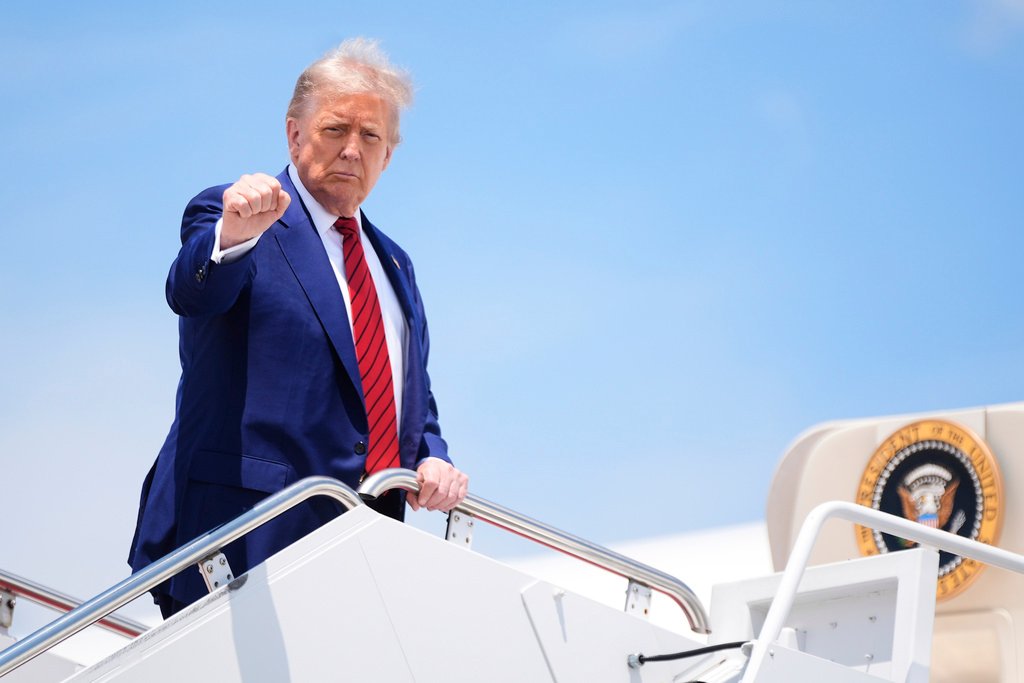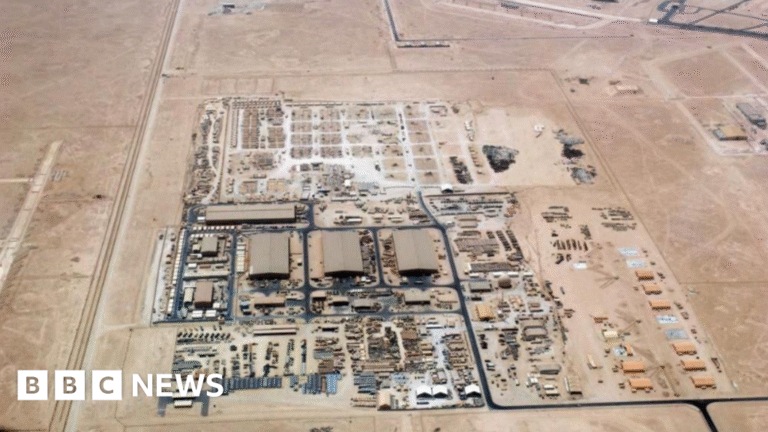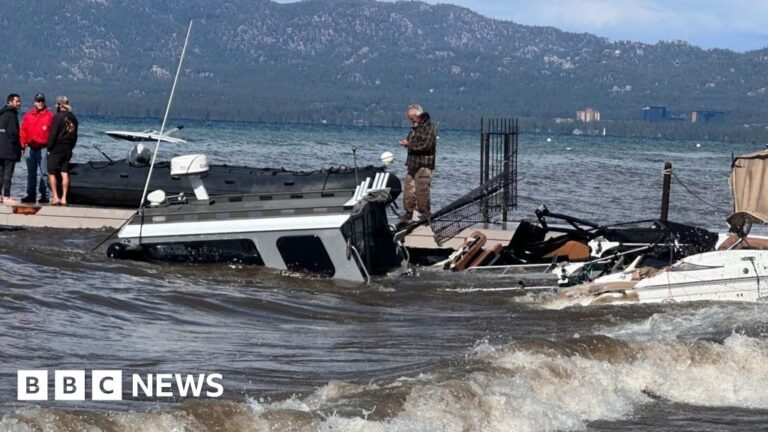
WASHINGTON, D.C. – Five months into his second term, President Trump has displayed an unorthodox style to say the least. “The president brings a unique style, and it behooves everybody, whether political friend or political foe, to understand that unique style,” says Behnam Ben Taleblu with the Foundation for Defense of Democracies.
Indeed, to understand the Trump foreign policy, you must be a student of it. “His style is designed to cement,” Ben Taleblu says. “I don’t think people are switching sides and changing minds and flipping. I think it is bolstering, hardening, calcifying the battle lines, the views, the values, and interests that one can find in the mosaic of America.”
In Trump world, that mosaic hasn’t worked over the past few decades. In the aftermath of 9/11, for example, the pattern included nation-building and forcing freedom into countries not ready or not wanting it. That’s a point President Trump made on his recent trip to Saudi Arabia. “In the end, the so-called ‘nation-builders’ wrecked far more nations than they built — and the interventionists were intervening in complex societies that they did not even understand themselves,” the president said.
Additionally, during the same speech, President Trump said the United States shouldn’t be playing a global moral authority card. “I believe it is God’s job to sit in judgment — my job (is) to defend America and to promote the fundamental interests of stability, prosperity, and peace.”
***Please sign up for CBN Newsletters and download the CBN News app to ensure you receive the latest updates.***
That view means being transactional, such as making deals, economic and otherwise, to first give peace a chance. “The goal is not more war. The goal is to stop wars,” Retired Colonel Rob Maness tells CBN News.
Maness believes it can be worth being unorthodox. Case in point: Trump meeting with Syria’s new leader, once considered an Al Qaeda terrorist. He sees playing nice with Syria as unconventional and a potential move to isolate Iran and China who are interested in its oil fields. “I don’t like it one bit that the president decided to meet with him,” Maness says. “But if it helps achieve that larger goal of peace through strength and reestablishing that, I have to accept it and move forward with it.”
President Trump’s unorthodox foreign policy began in his first term, by engaging in direct diplomacy with North Korea and comparing whose nuclear button was bigger; he then challenged NATO allies to pony up more money; and then there came the Abraham Accords, a uniquely business-first approach to forge stability in the Middle East. “He’s much more transactional,” Maness says. “The Abraham Accords are a prime example of that…I think Saudi Arabia, if Trump is able to continue this approach, will probably be the next sign-on to the Abraham Accords, the major nation to sign on to that.”
For now, though, the current war between Israel and Iran is front and center. Trump’s desire to play peacemaker hasn’t worked…at least not yet. “It behooves the president, certainly, to try to work peacefully to resolve the Iranian nuclear crisis,” Behnam Ben Taleblu with the Foundation for Defense of Democracies tells CBN News. “But also to remember that you know who is the actual enemy here, and not be afraid to, just as President Reagan did, to call evil an evil and to call a spade a spade.”
It has put the president in a potentially difficult situation with a MAGA base that doesn’t want to be drawn into foreign conflicts. It’s a view projected by his vocal Vice President JD Vance who recently told Naval graduates the following: “No more undefined missions, no more open-ended conflicts — we’re returning to a strategy grounded in realism and protecting our core national interests.”
While that’s been the Trump Doctrine, the Israel/Iran war has muddied the waters. Influential voice Tucker Carlson accused the U.S. of being “complicit in the act of war” by backing Israel against Iran. “I am saying this because I am really afraid that my country is going to be further weakened by this,” he said on a recent television show. “I think we are going to see the end of the American empire. Other nations would like to see that, and this is a perfect way to scuttle the U.S.S. America on the shoals of Iran. But it is also going to end Trump’s presidency.”
President Trump brushes off the criticism by saying since he came up with the “America First” doctrine, he decides what it is and what it is not. “For those people who say they want peace—you can’t have peace if Iran has a nuclear weapon,” Trump recently told a national reporter during a phone conversation.
Of course, over the weekend, President Trump made that very clear with a surgical strike on the country’s key nuclear facilities. Furthermore, he signaled further military action by the United States is not out of the question. “Iran, the bully of the Middle East, must now make peace,” the president told the nation on Saturday evening from the White House. “If they do not, future attacks will be far greater and a lot easier.”
Through all of his moves, Trump is showing what peace through strength looks like. “He’s proven that what really does matter is U.S. power, is U.S. primacy, and a vigorous defense of that will mean a more secure homeland and more secure American interests abroad,” Behnam Ben Taleblu says. We’re seeing it play out in real-time world events all over the globe.






